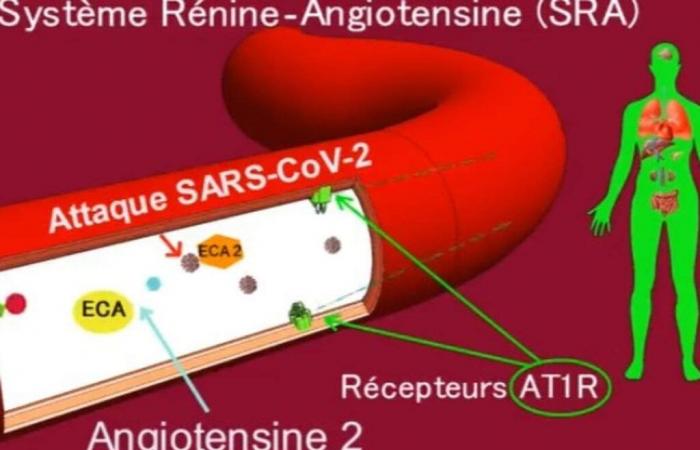Angiotensin-converting enzyme inhibitors (ACEI) are essential as first-line treatment, according to a new consensus of Egyptian experts. This is exactly what Jean-Marc Sabatier has been saying here for years.
Cardiovascular diseases remain one of the leading causes of death worldwide. A new study carried out by 36 Egyptian cardiologists in 2024 sheds decisive light on the therapeutic strategies to be favored, particularly in the treatment of the renin-angiotensin-aldosterone system (RAAS).
A complex system at the heart of our cardiovascular health
The RAAS plays a fundamental role in the regulation of blood pressure and water balance in our body. Its dysregulation can lead to serious complications: hypertension, heart failure, myocardial infarction and stroke. Researchers have identified two main classes of drugs to control it: ACEIs and ARBs (angiotensin receptor blockers).
IECAs: the preferred choice of experts
The study reveals that ACEIs provide superior benefits to ARBs in several crucial clinical situations. They are particularly effective for:
- Reducing the risk of myocardial infarction
- Prevention of heart failure
- Management of type 2 diabetic patients
- Post-infarction treatment in the first 24 hours
A new approach to treatment
This study marks a turning point in the management of cardiovascular diseases. Although ACEIs may cause cough in some patients, this side effect is often overestimated and can be alleviated by the use of lipophilic ACEIs or their combination with calcium channel blockers. ARBs remain a valid alternative for patients who cannot tolerate ACEIs.
-Towards personalized medicine
The recommendations emphasize the importance of an individualized approach to treatment. For patients with heart failure with reduced ejection fraction, newer angiotensin/neprilysin receptor inhibitors (ARNIs) are now considered the first choice, with ACEIs in second place.
This major advance in the understanding and treatment of cardiovascular diseases promises to significantly improve patient care and reduce overall cardiovascular mortality.
What is the renin-angiotensin system?
This is what Jean-Marc Sabatier* has been supporting since 2020 in our columns. Here’s what he claimed in a censored article: “The ubiquitous renin-angiotensin system (RAS), also known as the renin-angiotensin-aldosterone system, is a hormonal and physiological system whose function is to control blood pressure and circulating blood volume in humans. The RAS also regulates pulmonary, cardiovascular, vegetative, renal functions, innate immunity and various microbiota including the intestinal microbiota. The RAS controls autophagy which is a process of cellular regeneration allowing the elimination of waste and damaged elements within the cell (a process initiated from 3 days of fasting). It is a form of endocrine and enzymatic regulation cascade. It is present in all organs and tissues of the body. RAS has endocrine, autocrine, paracrine and intracrine activity.
RAS components are found on both the plasma membrane of cells and on the membranes of various organelles, such as mitochondrial membranes.
*Jean-Marc Sabatier, doctor in Cellular Biology and Microbiology, research director at the CNRS. He speaks here in a personal capacity.
The unsuspected role of the renin-angiotensin system







